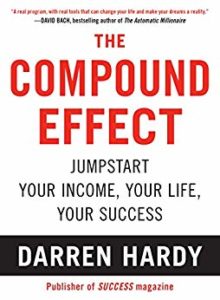If you have been following the last 10 lessons, you know by now that in the early summer, I set out to a) learn what I could about productivity and b) become more organized. Summer, for a professor, is a natural pause in the rhythm of life. I still teach a couple of classes in the summer, but life slows down dramatically (as it does for retail after Christmas or the neighborhood ice cream truck after the summer heat breaks).
We have to recognize these seasons of life and work with them rather than against them. It is only because I had the extra time that I could spend it reading extra books on productivity. These were books that I could not have read during the semester, or at least, I couldn’t have read them without displacing some other valuable activity.
Sometimes you want to get focused, but life is out of balance and you can’t get to your top priorities because you are missing certain prerequisites. Before you try to make a big change, consider the rhythm of life.
Over the semester, my office tends to deteriorate. I accumulate a large pile of papers, my desk gets cluttered, and it becomes difficult to get my work done. But when the summer came I decided I was going to operate with greater efficiency than ever before. Yet, I couldn’t work productively because prerequisites prevented me from doing so.
Here I am intentionally using academic language so let me explain myself. In college, you can’t just take whatever classes you want. If a freshman asks for a difficult, upper-level class, his advisor should make sure that he has taken the prerequisite courses that will allow him to be successful. Some courses are so fundamental to success in later courses, that the professors require certain courses to precede other courses. For example, you cannot take Algebra II before Algebra I, and you cannot take Algebra I before pre-algebra. Heaven help you if you attempt calculus before completing this foundation.
In life, prerequisites are not laid out so clearly, but they function just the same. To work optimally, I had to make sure I had tended to other non-work activities so that I could focus. For example, we homeschool and one of our computers stopped working. I am not terribly technical, but in a few days, I replaced the hard drive and my son was back to his school work. Prerequisite 101.
My home office was hardly useable between my papers and clutter that accumulated in it. Apparently, my children think that their areas are clean when items are relocated to my office. This took another few weeks. Prerequisite 201.
I cut down this clutter to a small corner that keeps wanting to grow back, but I am managing it. The greater task was dealing with my own mess. I already told you about the pile of papers. I wasn’t joking. It took a long time to file what I needed and trash what was not. It felt great to have things where they should be and not feel overwhelmed by the pile. Prerequisite 301.

I even decluttered my laptop, filing accumulated desktop clutter (hundreds of files were just stuck in a desktop folder labeled “to be filed later”) and I even went so far as to declutter online bookmarks. Prerequisite 401.

It was a pay me now or pay me later scenario. Jim Rohn, the business philosopher and motivational speaker, used to say, “We must all suffer from one of two things: the pain of discipline or the pain of regret.”[1]
Once these prerequisites were completed, I was amazed by how quickly and efficiently I could work. I had a few new course preps this summer, and I am not sure that it would be possible to prepare more efficiently, because my workspace was now optimized. I don’t dread walking into my office and I am not spending mental energy worrying about other projects.
When I first read about Darren Hardy’s morning rituals[2], I thought, “that guy must be a machine.”
I couldn’t have functioned like that if I wanted to because other tasks had to be completed before I could engage at a higher level. These tasks are barriers to personal productivity. To operate at your best, you must be aware of the season and the prerequisites that will allow you to function at peak efficiency.
What About You?
How efficient are you now? Are prerequisites inhibiting your productivity? If so, are you in a season where you can address them?
References
[1] Fernandez, I. (2019). Think like Jim Rohn: Top 30 life and business lessons from Jim Rohn. United States: Important Publishing.
[2] Hardy, D. (2010). The Compound Effect. New York: Vanguard Press.
.
___________

Dr. Darin Gerdes is a tenured Professor of Management in the College of Business at Charleston Southern University.
All ideas expressed on www.daringerdes.com are his own.
This post was originally created for Great Business Networking (GBN), a networking organization for business professionals where Dr. Gerdes is the Director of Education.
___________

